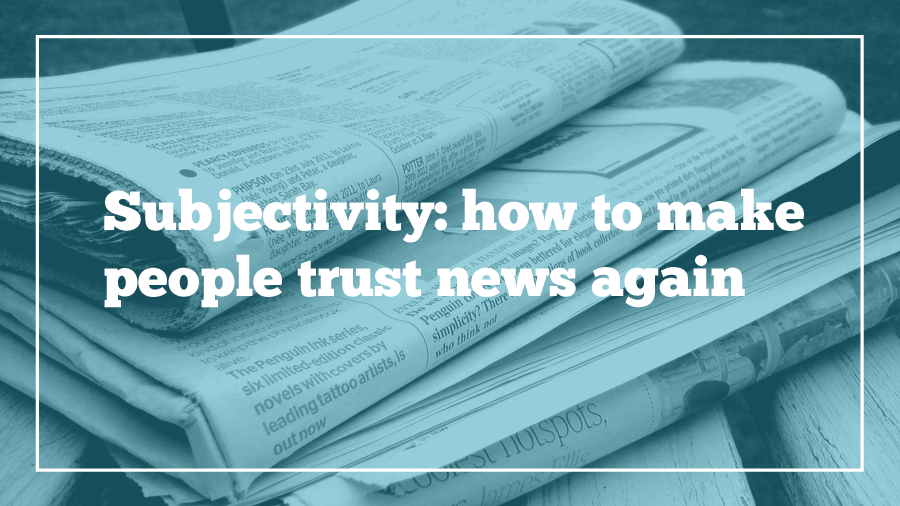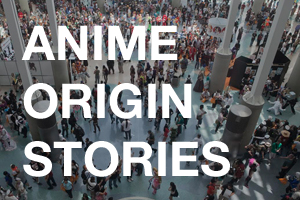
Last week, a New York Times writer published a review of anime streaming service Crunchyroll as an outsider to the genre. Plenty of anime fans took offense to this, with Thoughts That Move going so far as to call the review “either a failure to do his due diligence as a paid writer or as an intentional smear of Crunchyroll and anime.”
In extreme contrast, I also published an article of an anime streaming service last week, in Forbes. It was the result of my interview with Anime Strike, a company I have publically had reservations about. I see this as the other side of the same coin—there, somebody with zero opinions about anime formed an opinion after previewing a service; in my case, I had been using that service and others, and formed my opinion, long before I wrote the article.
This goes directly against my journalism school education, which preached objective reporting above all else. One of my most-repeated anecdotes from my master’s program is the time a professor warned us not to vote in presidential elections if we wanted to be journalists. After all, true journalists are always willing to hear both sides, but never pick one for themselves.
If you’re new to Otaku Journalist, you might not know about my Otaku Journalist manifesto. If my body of journalistic work has a thesis statement, this is it, and it’s in direct opposition to that particular j-school lesson. For the last five years, my manifesto has been the way in which I justify reporting on subjects I continue to have passionate opinions about. An excerpt:
“Human beings are opinionated by nature. If we try to suppress them, they might unconsciously come out even more glaring than if we’d addressed them directly. To pretend to be a robot is not only impossible, it’s dishonest.”
At the time I wrote this, it felt revolutionary. But in 2017, a time when people distrust the media more than ever, I don’t think I could find a straw man out there who would side with affecting total objectivity. (Because it always is affecting—humans simply aren’t objective. While the New York Times review was objective on the surface-level, we discovered his not-so-shocking dislike of anime fans later when he threatened to sue one over Twitter.)
Bringing this back to Anime Strike, I set out to write this article without concealing how I felt. I’m not just a reporter, but a member of anime fandom, and when Anime Strike gave bottled answers to ANN and refused to interact with fans, I felt offended, too.
So that’s how I approached the article. The very first thing I did was reach out to my own community and ask them, what would you like me to ask Anime Strike? And then, I immediately took those questions, many asked in somewhat unkind terms, and sanitized them, the better to get Anime Strike to actually respond. This wasn’t easy, as you can tell from me referring only to “Anime Strike” as an entity—I worked through a PR agent, and received no name for who answered the questions, simply “a spokesperson.” It was pretty faceless.
It’s not unusual for me to go into the reporting process with an initial opinion. Reporting is about people, and I’m a person, too. If I have a burning question, I ask it and hope it answers a question other people have, too, but weren’t in a position to get answers to. (Like when I wrote about bringing doujinshi home from Japan in Am I Going To Get Arrested For Bringing All This Cartoon Porn Into The US? Maybe you wondered but were afraid to ask!) But when I go in with a negative opinion, I’m always secretly hoping the interviewee is able to change my mind. For Anime Strike, all it would have taken were some sincere answers.
Of course, I didn’t get that. Out of the 11 questions I sent, I got four answers, and a bunch of “no comment.” The company also asked me to write my article in a way that did not draw attention to their refusal to answer most of my questions; I didn’t. For that reason I alone I tweeted that this was probably a “bridge-burner,” an article that would get me blacklisted with the company.
This happened to me long ago when I wrote up some bad press about Etsy, even though the company asked me not to, and it refused to send me press releases or official statements after that. (For the duration of that reporting job, I had to cover Etsy without any access to Etsy itself.)
However, Anime Strike’s PR thanked me for including some of the service’s positive features, and asked me to write back any time. I asked that in the meantime, they come up with some answers to the questions I wasn’t able to get replies to. It was probably my most unkind retort to a company, ever. I can’t do my job without companies, which incentivizes me to be nice to them so they don’t pull an Etsy on me. In turn, they’re incentivized to be nice to me, and give me free stuff. Journalism is just a bit broken, yes. No wonder nobody trusts it anymore!
However, I think we can start rebuilding honesty in news from the inside, by being honest to ourselves. For me, that starts with reporting in my own community—you won’t see me in the New York Times reporting on media I don’t like and know nothing about. Maybe local news is gone for good, but I can at least report on news that’s important to fans like me, from a perspective they can relate to. People don’t have to guess if I’m really objective (and nobody is) because I’m not hiding my viewpoint. They can take that, take the facts, and make their own opinion.
Photo by Jon S
Discover more from Otaku Journalist
Subscribe to get the latest posts sent to your email.




7 Comments.
I think one problem is that typically subjectivity is seen as being close or narrow minded. It’s even treated this way by many who try to pledge absolute objectivity or “balanced and fair coverage” The truth of the matter though, is I feel like a true journalist is someone who makes their own opinion known but also is aware and flexible to other mindsets. Rather than trying to be as objective or subjective as they can be, I like to see people who know a lot about what they report on to the point that they’re able to say “Hey it isn’t just simply this or that, there’s a lot of dynamics out there. Some I know well and others I’m still learning. I have my opinions and they’re strong, but I’m not entirely immovable either”
Originally I was going to send you the link to the NYTs article when I started reading it, thinking it might be good for Friday’s link round up.
Before I was through reading the article I decided to not do so. The focus on fan service and nothing else was disingenuous at best. The reporter obviously knew nothing and hadn’t bothered to do any research.
@zoeliddel:disqus the one issue though is, if he HAD researched, he might have found Eromanga Sensei or something…
True. But it would have been so nice if he had talked to some people who known anime to get a grounding.
But, yeah, it could have been worse.
Did the writer of that article really threatened to sue an anime fan on Twitter? I worry about journalists being on social media when they write articles that will be criticized, though that’s a whole other story/
And I really think reporting in your own community is important. Hell, I think more people are concerned with local issues than global ones that get so much attention.
PR sounds absolutely stressful and it seems like 90% of people who do it don’t know what they’re doing.
@MangaTherapy:disqus I linked to the threat in this post—they threatened to sue several fans! Really, nobody comes out of this looking good. Not us, because I mean, if the guy HAD searched harder he could have found EVEN PORNIER anime, and not him, because what kind of unprofessional attitude is that?
PR is rough. I prefer giving advice to young PR strategists than young journalists these days because I feel like I have more useful advice to offer them.
There’s a lot involved with your post here, as well as the topics it covers, but as a fellow journalist who’s been questioning her own status as a journalist recently, here’s what I want to say:
1. Despite being human, journalists SHOULD try to present all sides and be as unbiased as possible. This is more necessary than ever in American media, as I don’t trust a shred of it and go to the BBC for all my news because, as a publicly-funded company, they have a duty to be as factual as possible.
2. That being said, I don’t see your reporting on Anime Strike as “biased.” You were simply reporting on the facts as you experienced them, that you experienced a crappy PR situation with a company that didn’t seem very transparent. That is, in a sense, journalism. It’s more personal, and not necessarily something to be printed in the New York Times, perhaps, but it’s still honest journalism. Good on you for calling BS on their “no comment” shit. As my college’s newspaper editor, I once infuriated the provost because she kept giving no comment answers to a serious article inquiry. After printing the piece stating very clearly that she refused to answer my questions, I received an email from her which asked (demanded?) me to retract the article. I essentially told her to fuck off, and that her journalism professors were teaching me to do just this, and she never responded. Suck it.
3. Companies and brands who refuse to acknowledge bad press about themselves are also part of the problem here, not journalists and publications alone. Those companies which refuse to take criticism and improve will inevitably fail. That’s part of the reason why journalism exists, to show what’s true in the world and try to inform readers. Businesses who suck at their jobs will have to learn that the hard way.